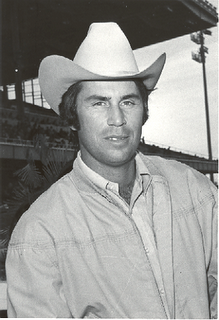The Father Of Soft Training?
 Here's the man again, folks, straight off his website still identical to what it was last year when I posted this photo.
Here's the man again, folks, straight off his website still identical to what it was last year when I posted this photo.Lukas will have to bear the brunt of me using him as a poster boy for soft training. I've documented this rather clearly in the blog, see December and January of 2006 and 2007, and so I'm unapologitic because this IS a soft trainer, and he does injure a lot of horses (see January 26-28, 2007), even though at about the same rate as his compadres.
Lukas stands out of course because of the sheer size of his old operation, and also the success he's had with major races. But, what I notice about this trainer, who I consider a good guy instead of a villain, is the break from the training of the old timers that Lukas took with his huge operation.
In terms of an influential stable that people watched, there's nothing clearer to me that between Lukas coming on in the late '70s and early '80s, and what was happening earlier, there was simply zero resemblance in terms of training horses.
Let's note a few things. I believe a transition to softer training was taking place before Lukas for any of a number of reasons. I've yet to do a study, but, were the major trainers of that time--Laz Barrera, Leroy Jolley, whoever it was the trained Seattle Slew and Laurin with Secretariat. These fellows I believe were training far harder that what we see today, but they were were hardly breezing every three days like Preston Burch and Max Hirsch. Racing in general--and again, I'm guessing, had already moved away from the really hard training by the late 60s and early 70s.
If I wanted to write a book I could find lot's of reasons for that, but, I'll just speculate that it was for reasons of lack of riders, shorter races, lack of money, lack of help, and maybe also a lack of any motivated capable trainers to make hard training work, since that method takes extreme care. It's just easier in a lot of ways to lighten the load a little.
Then along comes Woody Stephens. You are unable to know what Stephens did by reading his book except you can guess. Stephens was a noted, touted trainer who wrote a whole book without hardly mentioning his training methods, which gives you some idea of the priority he put on that. I think Stephens lightened up things considerably on the East coast and that he probably had a lot of imitators. We know for sure he'd race a horse he couldn't train due to the weather, in the case of Devil's bag.
So, was it Stephens that ushered in the soft training or Lukas. My guess is that Lukas took soft training to new levels. In Lukas we suddenly have horses on track actually restricted to just a mile to mile and a half slow gallops, barely loping along, and hardly ever breezing more than 5f. I think that would be a sharp break from what W. Stephens probably did. And so, I'm going to call Stephens a transition figure along with a lot of those '70s trainers, and declare that for the really soft conventional stuff that was around starting in early 1980 all the way to the present, it was Lukas that is responsible for it in the big way
One more point in this regard. There have of course always been soft trainers. Burch in his book obliquely refers to soft trainers. Jay Hovdey's book on Whittingham notes Charles leaving a soft training stable in the 1930s. Staaden on T. J. Smith (Australia) compares T.Js. hard methods to the soft training of so many around him. Soft training is thus nothing new, but, I believe that Lukas institutionalized it of late, and gave all those that want to avoid hard training the example.
Our training: as a preface to fast work Monday, today on Sunday in bad weather I got a riderless pasture romp. Y got a good work. Art was lazy. For tack work, its looking like my breaking point in terms of motivation is the 25 degrees this morning with 10 mph winds. Just unable to move myself onto their backs in this weather.
.jpg)

<< Home